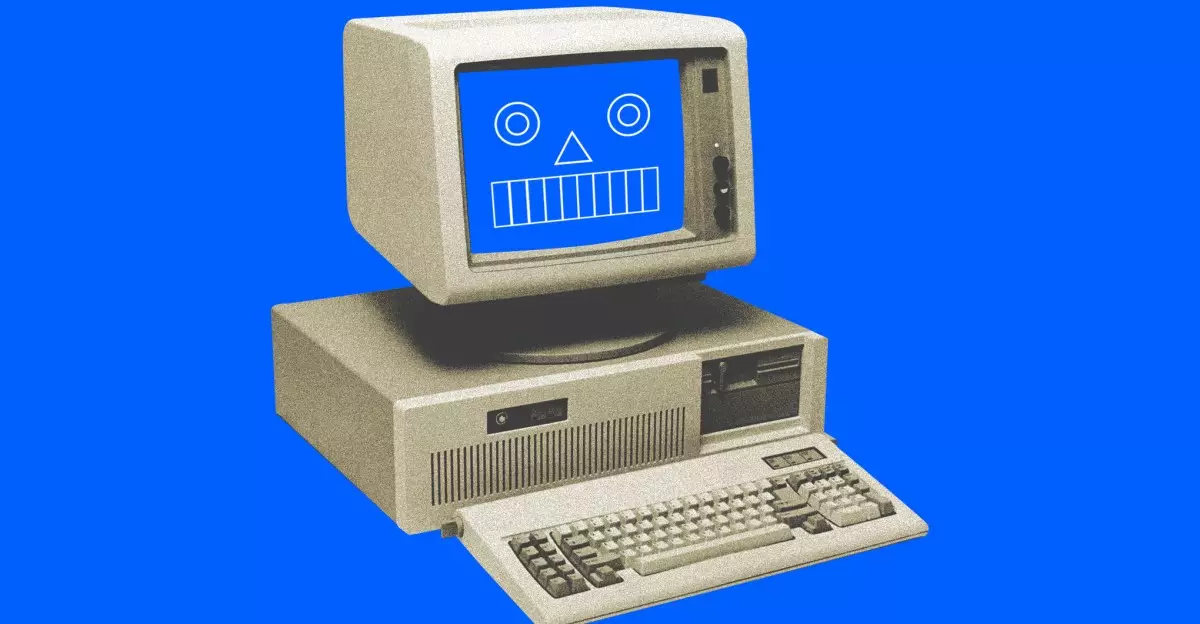As artificial intelligence continues its rapid evolution, startups like OpenAI and Anthropic are thrusting themselves into the educational spotlight. The race is on to capture the hearts and minds of the upcoming generation—who will establish the gold standard for AI tools in higher education? This question has taken on new urgency as these companies unveil their strategic plans aimed at university students. Not just passive learning aids, these AI tools are being reimagined as transformative educational companions designed to revolutionize the way students process information and develop critical thinking skills.
What has become clear is that the intersection of technology and education is valuable territory. The moves made by both companies are much more than mere marketing ploys; they represent a growing recognition of the seriously competitive landscape. Their ongoing initiatives signal a race not just for dominance in the educational sector, but for establishing an enduring relationship with the next generation of learners.
Anthropic’s Bold New Approach
Anthropic, in a significant push into higher education, recently unveiled its Claude for Education platform. Unlike typical educational software, Claude seems determined to engage students on a deeper level through its “Learning Mode.” This feature is specially designed to promote a Socratic style of questioning, encouraging students to reason out their thoughts rather than just regurgitate answers. By asking reflective questions such as “What evidence supports your conclusion?” the AI aims to cultivate a generation of critical thinkers.
Perhaps what sets Anthropic apart is its community-oriented partnerships with institutions like the London School of Economics and Northeastern University. By collaborating with educational establishments and organizations like Internet2, Anthropic seems intent on not only integrating its AI tool within university frameworks but also ensuring equitable access to technology. This approach indicates a greater goal of democratizing AI education, essential for crafting informed global citizens.
OpenAI’s Comprehensive Strategy
While Anthropic is launching its first major academic initiative, OpenAI has been carving its path in the educational arena for some time. With the introduction of ChatGPT Edu and a string of noteworthy partnerships, OpenAI is not merely catching up—it’s setting the pace. The formation of the NextGenAI Consortium and the backing of $50 million to bolster AI research across numerous colleges underscores OpenAI’s commitment to embedding AI into the fabric of academia.
A particularly striking aspect of OpenAI’s educational engagement is the offering of its ChatGPT Plus services at no cost to all U.S. and Canadian students for a limited time. This move magnifies its intention to make high-quality AI accessible, especially in a landscape where students are grappling with increasing academic pressures. OpenAI’s VP of Education, Leah Belsky, aptly captures this urgency, stating that today’s learners are up against challenges that necessitate rapid understanding and problem-solving abilities.
The Broader Implications for Education
The simultaneous announcements from Anthropic and OpenAI reveal more than competitive rivalry; they highlight an essential shift in the educational paradigm. The integration of AI into the academic milieu is not just about improving grades or simplifying tasks. It’s about fundamentally rethinking how students learn, engage with material, and develop skills crucial for the 21st century.
The strategies employed by these startups may lay the groundwork for an AI-literate society. This literacy goes beyond mere comprehension of tools; it encompasses a deeper understanding of how to critically analyze information in an AI-enhanced world. The potential to produce thinkers who question rather than accept information at face value could fundamentally redefine educational objectives.
The stakes are undeniably high. Both Anthropic and OpenAI seem poised to shape not only their own futures but the futures of countless students. As they continue to innovate, the impact of their initiatives could ideally extend to improve educational equity, promote critical thinking, and produce well-rounded individuals ready to face the complexities of a modern, AI-driven landscape. In this unfolding narrative, one thing is certain: the competition in higher education is not just a fight for market share; it’s a fight for the very essence of how the next generation will learn and interact with the world.


Leave a Reply